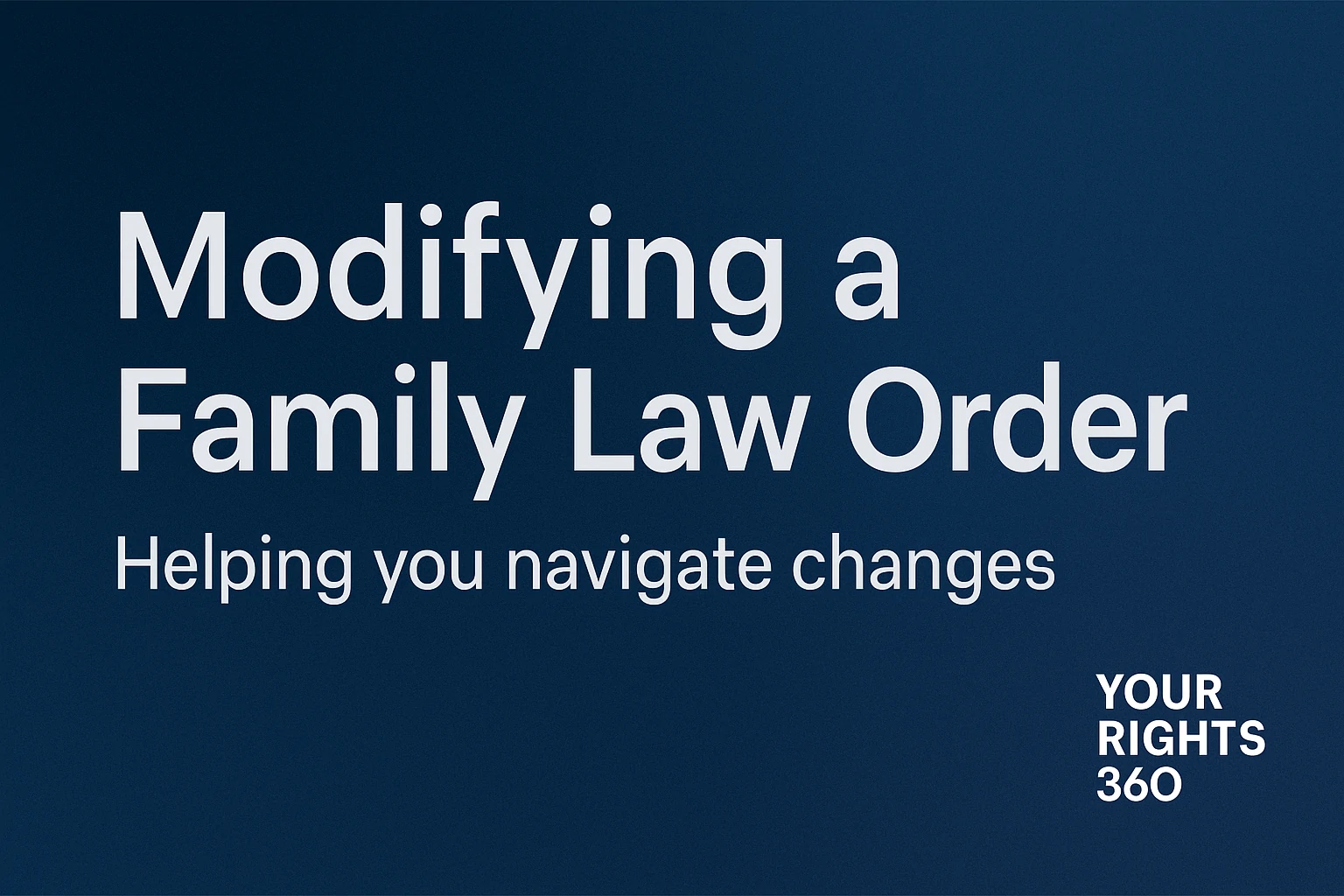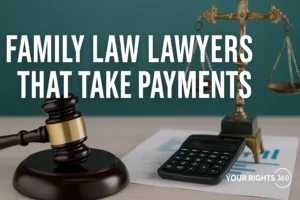Life does not always go as planned. A court order that once worked may no longer fit your life. A job may end. A parent may move. A child may need more care. When these things happen, a court order should not cause more harm.
Family law covers support, custody, visitation, and spousal help. Courts use orders to manage these issues. But no order lasts forever. If your life changes in a serious way, you have the right to ask for an update. You must do it the right way and at the right time.
You cannot fix the issue with a phone call or a handshake. Courts only follow written orders. Any change must go through legal steps. This is where a family law order modification lawyer makes the process clear and smooth.
This article explains what order modification means in family law. It shows how a lawyer helps, why time matters, and what to expect when you take that step.
Understanding a Family Law Order Modification
A family court order is a written rule. It covers how much support a parent pays, when a child visits each parent, or how long alimony must continue. Once signed, that order stays in place until a judge signs a new one.
A modification means you ask the court to change that rule. You must show a real reason. That reason must be serious and lasting. You cannot request a change just because you feel stressed or unhappy.
Many people think they can agree with the other parent and fix the problem on their own. That choice brings risk. The court does not follow private deals. If the other side breaks it, the court will only enforce the last signed order. You must get the change approved the right way.
Why You Might Need a Court Order Changed
Time brings change. A parent may lose income. A child may need therapy, surgery, or a new school. One parent may move to another state. A job shift may break the old schedule. Life rarely stays still.
These changes may seem small at first. Over time, they can grow. The old order becomes hard to follow. One parent may struggle to keep up. The child may suffer in silence. At some point, the court must hear what has changed.
Judges do not care about blame. They care about facts. They want to know what changed and why the change affects the current order. That is where strong proof and good guidance make a difference. That is why most people trust a lawyer to help make the case.
Waiting Can Lead to Bigger Trouble
Time is not on your side in legal matters. Courts do not backdate new orders. If you miss payments before filing, you still owe them. Even if your reason is fair, the court cannot undo what you failed to do.
Some people wait too long. They think things will settle down. They hope the other side will understand. But months pass. Debt grows. A small problem turns into a legal mess.
The court does not forgive missed child support. It does not lower it without an official change. Interest may add up. Penalties may follow. Some parents face jail. These risks grow every day you delay.
The better path is action. Once your situation changes, speak to a lawyer. Let them help you file fast. That one step protects you more than any excuse later.
Why a Lawyer Makes a Big Difference
Legal forms look simple online. But every case has twists. Courts expect the right wording, the right proof, and the right steps. A lawyer knows what the judge needs to see. That skill saves time and stress.
A lawyer studies your old order and your new problem. They gather the right records. They show the judge how the facts support your request. They handle the paperwork, the filing, and the hearing if needed.
You may not feel ready to face the court. You may not know what to say. A lawyer stands with you. They speak on your behalf. They protect your voice. They stop mistakes before they happen.
Even if the other side agrees with your request, you still need the court to sign it. A lawyer makes sure that agreement becomes a valid court order.
What Happens After You File a Request
Once you file, the court reviews your paperwork. The judge may set a hearing date. Both sides may need to appear in court. The judge may ask questions or request more documents.
You must follow the old order until the court signs the new one. That means no skipped visits, no withheld payments, and no verbal changes. The law only follows what the judge signs.
If the court agrees that your life has changed in a big way, it will approve the update. The new order starts once the judge signs it. If the court denies the request, the old order stays in full force.
Every word in your filing matters. A lawyer makes sure each detail is clear and complete. That gives you the best chance to move forward with success.
Trying to Handle It Alone Can Backfire
Many people try to change a court order without help. They want to save money. They download free forms. They search for answers online. Some get lucky. Most do not.
One wrong word can lead to a denied request. One missing paper can delay your case. Some people fail to notify the other side, and the court rejects the case. Others speak poorly in court and lose their chance.
The damage goes beyond the courtroom. A failed case stays on record. A missed deadline may close your path for months. Some people face fines or even jail for breaking an old order too soon.
A lawyer avoids those traps. They know the court. They know the process. They give your case the best shot at real change.
Choosing a Lawyer Who Knows This Work
Not every lawyer takes family law cases. Not every family lawyer handles modifications. You need one who focuses on this work and knows how to guide you.
Ask about their past work. Check reviews. Listen to how they explain things. A good lawyer will speak in plain words. They will not make false promises. They will lay out what to expect and how to prepare.
Your lawyer should return your calls. They should respect your time. They should ask the right questions. This person will be part of a hard chapter. Make sure they fit your needs and values.
When the Other Side Breaks the Order
Sometimes the problem is not a life change. It is the other party. They may skip visits. They may miss payments. They may change plans without warning. You do not have to accept that.
The court allows you to enforce the order. A lawyer can file that request. The judge can fine the other party, change the order, or take away some rights.
If the child faces harm, the court may act fast. Safety matters more than anything. Never wait if a child is at risk. Call a lawyer. Call for help. Let the court know what is happening.
Read Also: Family Law Appeals Attorney
Conclusion
A family court order holds weight. But it must reflect real life. When things shift, the order may fail to do its job. That is when you need a family law order modification lawyer.
This lawyer helps you speak up. They put your proof in front of the court. They protect your rights. They keep the process on track.
Do not let fear or delay stop you. Do not wait for the perfect time. The time is now. The help is real. One call can lead to peace, protection, and a fair result.
Take the first step. Ask the hard question. Let a lawyer help you take back control.
This article is for general information only. It does not give legal advice. Speak with a licensed attorney to get help with your specific case. Reading this post does not create an attorney-client relationship.




